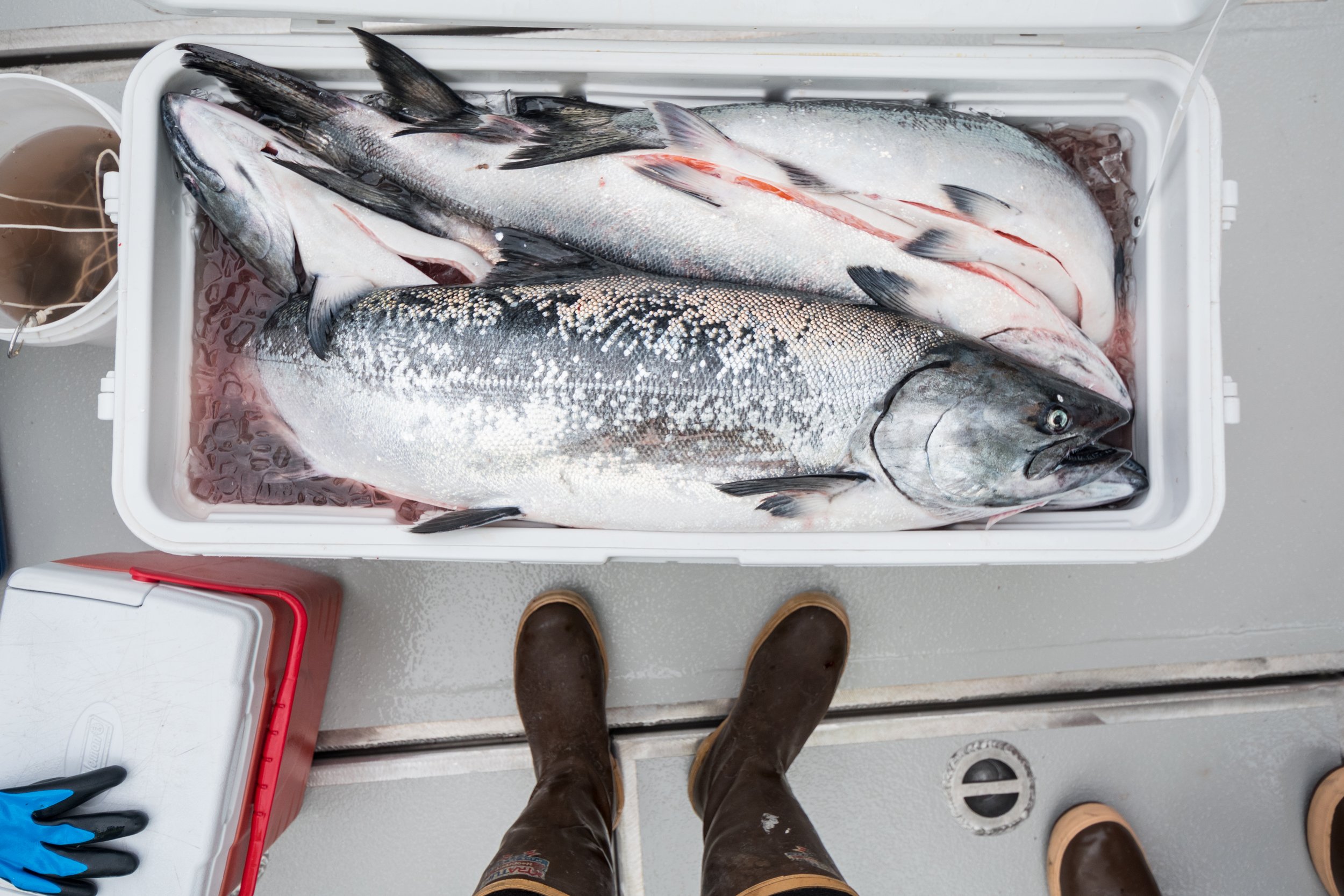Fishermen and conservation groups call on Alaska's leaders to stand up to misguided Pacific Northwest lawsuit attacking Alaskan fishing families
Juneau, AK - Alaska fishermen and conservation groups called a recent Washington federal court ruling that is requiring more review of the impacts of Chinook salmon harvest by Alaska trollers on endangered Puget Sound killer whales a “dangerous distraction,” and “scapegoating at its worst.” The August 8th ruling in the suit, filed by the Washington-based Wild Fish Conservancy, will likely mean more environmental analysis of the impacts of Southeast Alaska’s highly regulated hook and line fishing for Chinook salmon, leading to more uncertainty for small-boat fishermen throughout the region.
“The Wild Fish Conservancy is singling out Alaska’s small-boat fishing families while ignoring the much larger issues threatening Puget Sound’s Chinook stocks and the southern resident orca population, including dams, ever expanding urbanization and habitat degradation, marine mammal predation, including - ironically - other populations of orca, and climate change,” said Amy Daugherty, Executive Director of Alaska Trollers Association.
“It’s unfortunate that the Wild Fish Conservancy is going after the people who are most invested in the future survival of wild salmon. Southeast Alaska’s small-boat fishing families are some of the biggest advocates for wild salmon - regardless of where those salmon originated. Our livelihoods and our families depend on their survival which is why we’re constantly pushing for habitat protection and science-based fishery management. With climate change already wreaking havoc on our marine ecosystems, more than ever we must work together rather than point the finger at competing user groups,” said Linda Behnken, commercial fisherman and Executive Director of Alaska Longline Fishermen’s Association.
“This misguided lawsuit is a dangerous distraction of scapegoating at its worst, unfairly transferring even more of the conservation burden and cost onto Alaska’s fishing families instead of addressing the complex and politically-fraught issues that are driving the decline of salmon in the Pacific Northwest,” said SalmonState Executive Director, Tim Bristol. “If the Wild Fish Conservancy is genuinely concerned about the future of Washington’s Chinook salmon and southern resident orca population, then their attention and resources would be better spent on efforts closer to home.”
“For more than two decades, Southeast Alaska’s commercial fishermen have been cutting their harvests to protect Chinook stocks originating in the Pacific Northwest. Unfortunately, cutting Southeast Alaska’s Chinook harvest hasn’t brought those stocks back - the answer isn’t that simple. We need Alaska’s leaders to step in and protect what’s left of Southeast Alaska’s local fisheries and fishing communities. Otherwise we too will disappear with Washington’s Chinook and southern resident orcas,” said Daugherty.

